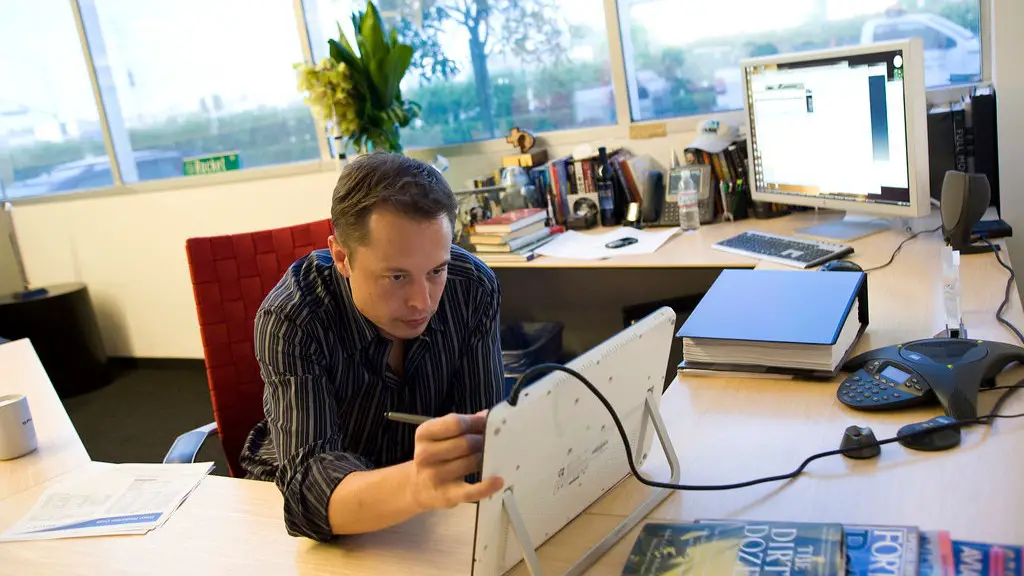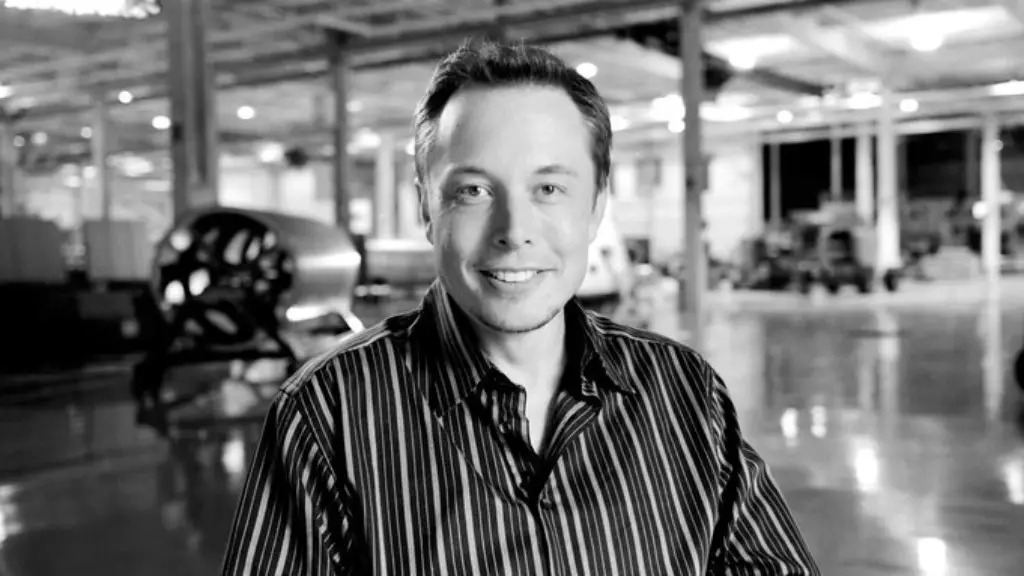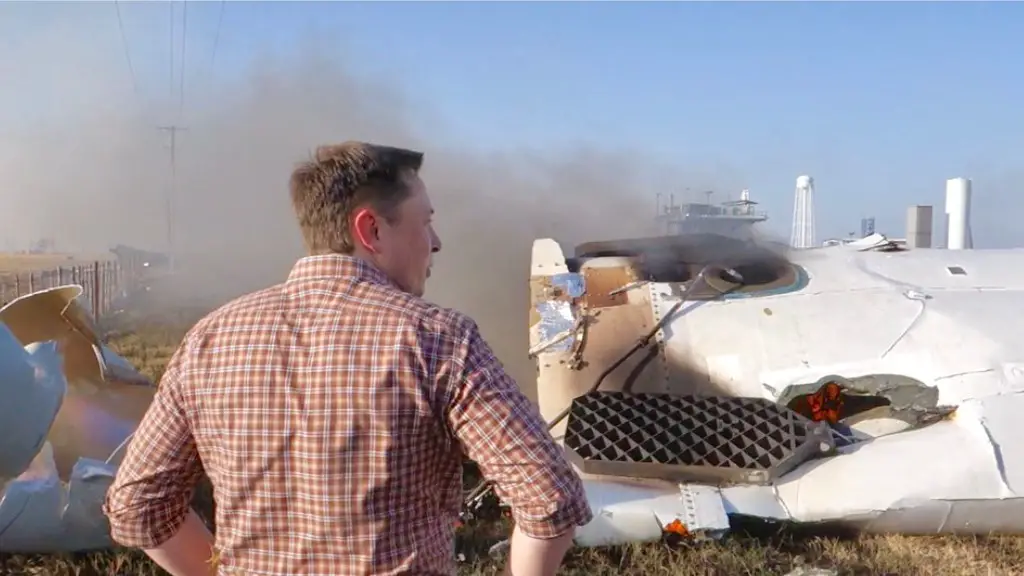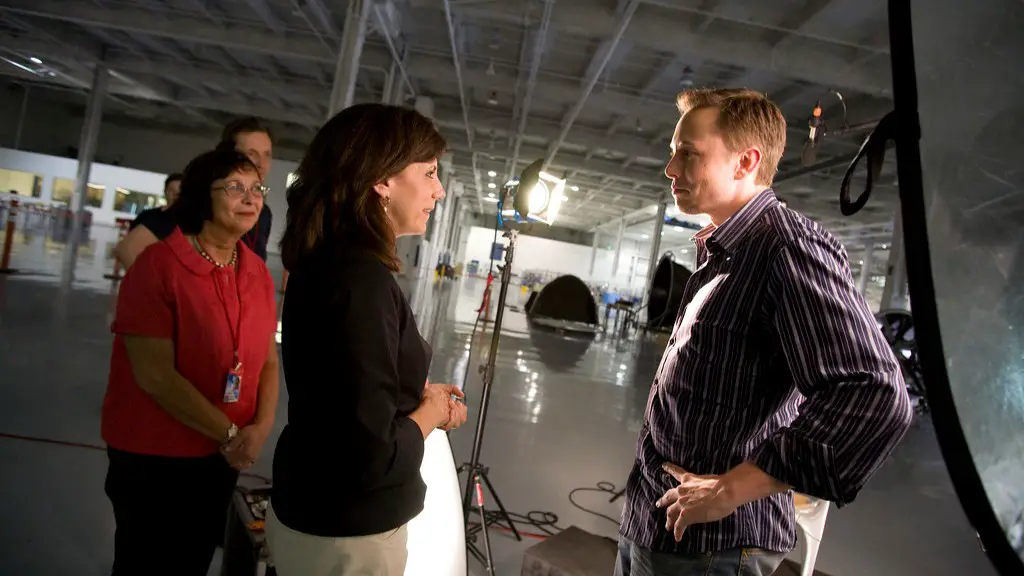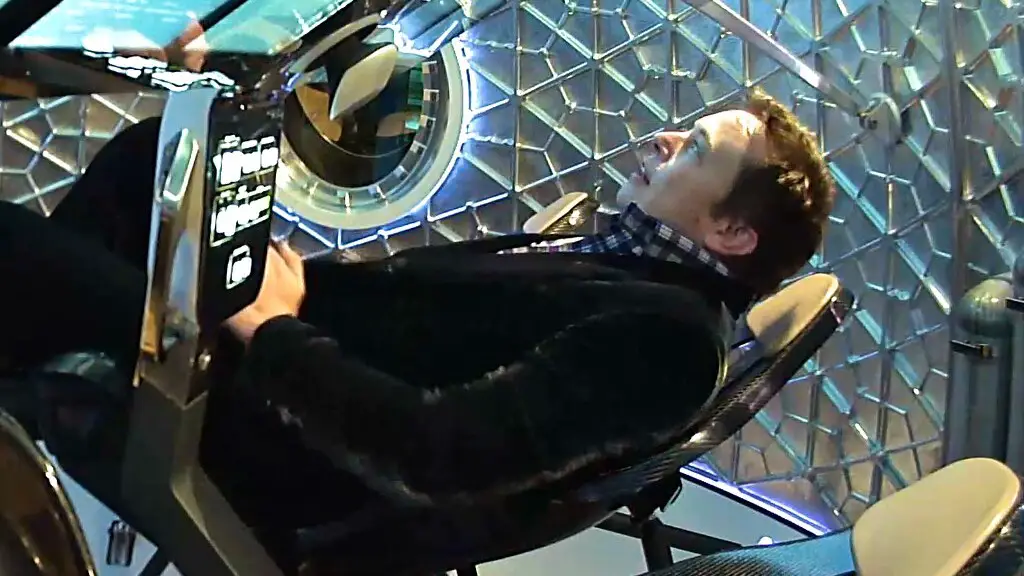Elon Musk’s Theory
Recently, the idea that we are living in a computer simulation designed by a higher intelligence has gained a lot of attention, particularly due to the pioneering work of tech visionary and entrepreneur, Elon Musk. Initially put forth in a 2003 paper written by Swedish philosopher Nick Bostrom, Musk has drawn attention to the paper and made the idea much more accepted among the public. Many are now wondering – is Musk right about us living in a computer-simulated reality?
The premise behind the theory, which Musk has proposed on numerous occasions, is that due to the vast progression of computing power and our own advancements in simulation technology, it must be possible for someone or something to have created a perfect digital simulation of the entire universe from a distant point in our (possible simulated) future. Musk has likened this idea to the popular film The Matrix, in which a character, Neo, is unplugged from the computer-generated reality to which he had been unknowingly connected. These computer-generated worlds could be a reality, according to Musk.
Of course, the implications of such a world would be enormous. For starters, how do we know that we are not already in a computer simulation? Those who support the theory point to the sheer complexity of the universe. They point to the fact that so much of what we observe in nature and the universe fits mathematical equations and physical laws too perfectly – could this possibly be coincidence, or is the universe actually the consequence of a coded simulation?
Musk isn’t the only one who believes in this theory; other significant tech and science personalities have shown support for the theory. Philosophers, physicists, and neuroscientists have all weighed in on the idea of a simulated universe, many of whom believe that either existence in a simulated universe is highly likely, or has already been proven to exist.
Advocates for simulation theory argue that if we are living in a computer-generated world, it could open up a wealth of possibilities in terms of creating environments, consciousness, and entire universes that could otherwise be impossible or very difficult in the physical world. Already, computer technology and simulation are playing a vital role in advancements in medicine, science, and engineering. For example, computer simulations allow scientists to study the behavior of particles that don’t even exist in physical reality, as well as model behaviors in cells and large-scale systems.
Simulated worlds can also provide us with tremendous insight into our own realities. Computer simulations of our physical world can provide us with a better understanding of how different systems interact with each other, from meteorology to ecology and the human body. This understanding is invaluable for the advancement of science and the improvement of our societies.
The Possibilities and Risks of Simulated Universe
The possibility of living in a simulated universe brings to light a wealth of questions, such as “who would create such a universe, and why?”. Some propose that our universe was designed by some advanced civilization that exists in a distant past or future. This civilization could have posed some advanced simulation program to generate artificial intelligence and consciousness and observe their development. In this way, they would not only be able to observe our development, but also provide cues and information to shape our direction and provide new knowledge.
Not everyone is a fan of the idea of living in a simulated universe, and there are certainly skeptics. Many believe that the idea of a simulated universe is far-fetched and without any solid evidence to support it. Others have argued that the idea of simulated universes raises significant ethical questions. For example, if this is a simulated world and we are living in a program with some predetermined rules and outcomes, does that mean that our futures and fates are largely predetermined, or can we make our own decisions and define our own destinies?
Some even have asserted that if our universe is indeed simulated by some higher power, then we may be restricted and limited in terms of the actions we can take and the outcomes we can generate. Similarly, this means that the low-level design of a simulated universe could be susceptible to manipulation. This brings up the troubling possibility of some higher power manipulating our universe and its inhabitants to serve some predetermined agenda.
The Arguments Against Simulation Theory
The theory of living in a simulated universe, while intriguing, is far from accepted as factual evidence. Skeptics of the theory have argued that we have yet to find any hard scientific evidence that we are in fact living in a simulated universe, and until that evidence is provided, there is no way to verify that this is our reality.
Another argument is that the idea of living in a simulated universe brings up the paradox of the “simulation argument”. According to this argument, if the universe is a computer simulation, then the computer must exist within reality, which doesn’t make any sense – why would something as advanced as a computer simulation exist within our own reality, and by whose will?
Finally, proponents of the theory must also come to terms with the fact that this simulated universe would have to have been created by some form of intelligent designer. This is one of the core issues with simulation theory and has caused the most debate. Musk himself has noted that it is not possible to definitively answer the question of whether or not we exist within a simulated universe without actually being able to travel to the point in our future where the simulation may be taking place.
How to Validate Simulation Theory
If one was to accept the possibility of living in a simulated universe, then the challenge would be to try and validate the theory from the position of a character within the simulation. Even Musk himself states that it is impossible to know if the universe is a computer simulation, simply because we don’t have the technology to travel to the point in our future where the simulation is believed to be taking place. Some argue that looking for anomalies and glitches in the system would be the easiest way to try and prove the existence of a simulated universe.
For instance, if a program was created to run a simulated universe, chances are that there would be some glitches in the system if the algorithm was not perfect. Certain inexplicably strange phenomena could be attributed to such a program, such as the speed of light being constant. A computer simulation would be limited in its ability to precisely simulate physical processes and this could lead to glitches in the system.
Furthermore, scientists have proposed that looking for patterns that are far too regular or too perfect in nature could be telling of a simulated universe. If the universe was created by some form of intelligent designer using a set of rules, then there should be odd patterns and anomalies in nature that could be attributed to the programming of the universe.
Parallel Simulated Universes
Many proponents of a simulated universe argue that, if it indeed exists, then there may be a number of parallel simulated universes that could be running at the same time. This is because a simulated universe system could theoretically be designed to allow multiple universes to be created, each with its own sets of rules and parameters. This could be an incredible development, as it would allow scientists and physicists to observe parallel universes and gain even more insight into our own reality.
Similarly, as technology advances, it could become possible to not only create a universe with set parameters, but also to initiate a process of evolution to generate living creatures and consciousness. This would be an amazing milestone for humanity and further support the idea of a simulated universe.
At the same time, many have noted the political, moral, and ethical implications of such a project. Creating entire universes to observe and experiment with could be perceived as a form of manipulation, as the original creators would have full control over the parameters and outcomes of the simulation.
This is why many have voiced caution against such theories ,warning that such a move could lead to unforeseen consequences. On the other hand, some argue that the possibilities of running simulations of our universe could provide humanity with valuable insights and knowledge that would not be attainable in our physical reality.
Improving the Accuracy of Simulations
A major issue with the idea of simulated universes is the accuracy of the simulation. For a simulation of our physical universe to be truly accurate, it would need to accurately depict physical processes as well as process complex systems and behaviors. This is where advances in computing power could play a major role, as more powerful computers could provide a higher level of accuracy and create more sophisticated simulations.
This could eventually lead to simulations of atoms, particles, and entire chemical processes that have never been seen in physical reality. This could open up a whole new world of possibilities and immensely help the advancement of science.
At the same time, there are some caveats to this approach. These simulations may never be as accurate as the real-world, simply because of the lack of control over variables that could lead to unexpected outcomes. That being said, these simulations will be invaluable tools for better understanding the physical mechanics of our universe.
On the other hand, advances in computing power may also bring forth the possibility of generating simulated universes that could be more accurate than our own universe. This could allow us to gain insight into the fundamental workings of our physical world, which could lead to major advancements in both science and technology.
Connecting Simulated Realities
If there are multiple simulated universes, then one of the most exciting possibilities is that we could establish a connection between them. This would be made possible through advances in communication and computing power, as well as the development of hubs that would allow us to interact with multiple universes.
In this way, we would be able to explore and observe different universes, as well as gain insight into their structure and underlying forces that shape them. Being able to access and explore different simulations could lead to a wealth of knowledge and new perspectives on the nature of our universe.
Furthermore, the ability to communicate with other simulations could prove invaluable for our own reality, as we could gain insight and advice from parallel universes. This could potentially open up the door to new technologies, new ways of understanding the universe, and new possibilities for our own universe.
Conclusion of Simulation Theory Potential
The idea of living in a simulated universe may very well be possible, thanks to advances in technology and computing power. This could open up a new age of exploration and discovery, allowing us to unlock new knowledge and insight into the fundamental mechanics of our universe. On the other hand, it could also give rise to new ethical and moral questions. Regardless, simulation theory remains one of the most intriguing and provocative ideas of our time.
